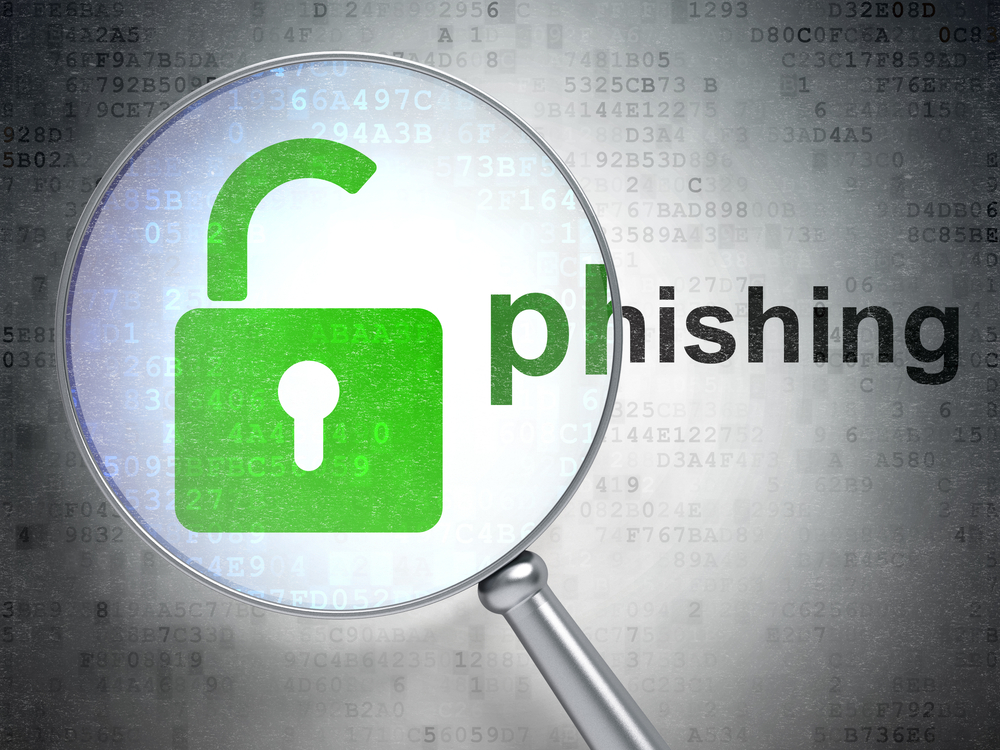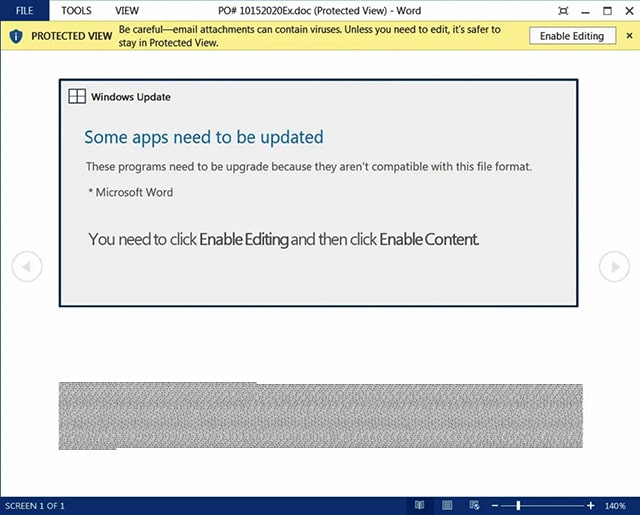
Phishing campaign uses US tax season to lure victims
Researchers at Cybereason have detected a new campaign targeting US taxpayers with documents that purport to contain tax-related content.
These deliver NetWire and Remcos -- two powerful and popular RATs which can allow attackers to take control of the victims' machines and steal sensitive information. The malicious documents used are roughly 7MB in size, which allows them to evade traditional AV mechanisms and heuristic detection.

Secure web gateway allows isolation of mobile devices
As mobile device usage continues to grow within enterprises the security risk increases too. Mobile browsers get patched less often and other threats come from phishing and malicious document downloads.
To combat these problems Menlo Security is extending its cloud-based Secure Web Gateway (SWG) to include web isolation for mobile devices.

Zero trust helps protect shift to remote work
A new report from Akamai looks at the technology shifts and usage patterns of 2020 noting a 30 percent jump in internet traffic thanks to COVID-19 lockdowns.
It also highlights criminals taking advantage worldwide, targeting all business sectors and industries, including information technology and security.

Business applications targeted in phishing campaigns
Business-related applications such as Zoom, Microsoft and DocuSign, now account for 45 percent of impersonation-related phishing attacks as cybercriminals seek to cash in on the vulnerabilities of remote work.
This is one of the findings of a new report from email security company GreatHorn which collected data from over 580 participants working across a diverse set of roles within the information technology security market.

Microsoft, Facebook and PayPal are the most phished brands
During 2020 Microsoft maintained its position as the brand most often found in phishing emails, followed by Facebook and PayPal.
Email defense specialist Vade Secure has released its 2020 Phishers' Favorites report which also shows that cloud services overtook financial services to become the most impersonated industry, whilst cynical hackers have been quick to exploit the COVID-19 pandemic.

2020 mobile phishing trends
Phishing is nothing new, but the COVID-19 pandemic has seen an increase in attacks around the world as cybercriminals seek to exploit the opportunities offered.
Mobile security company Zimperium has produced an infographic looking at phishing trends with a particular emphasis on the mobile sector.

Careless scammers leave stolen passwords exposed online
Hackers responsible for a large-scale phishing campaign unintentionally left over a thousand sets of stolen log-in credentials accessible to the public via a simple Google search.
The error was uncovered by researchers at Check Point. and Otorio. The stolen credentials were stored in designated web pages on compromised servers.

Firmware attacks, sophisticated ransomware and ID fraud -- cybercrime predictions for 2021
2020 has seen cybercriminals step up their efforts to exploit the surge of people working from home, as well as seeking to exploit news and information about the pandemic.
This is a notoriously difficult area to predict, but what do experts think we’ll see happening in 2021?

Spammers get better at pretending to be banks
As always, spammers and cybercriminals seek to take advantage of the peak online shopping season covering Black Friday and the Christmas holidays.
The Bitdefender Antispam Lab has identified a series of campaigns impersonating online banking and financial organizations. In October six in 10 emails (58.84 percent) relating to the banking industry were fraudulent.

Parcel delivery phishing scams up 400 percent in November
Researchers at Check Point have seen a 400 percent increase in phishing scams using DHL, Amazon and FedEx branding to try to get people to part with information during the peak online shopping period.
Two weeks ago, Check Point researchers documented an 80 percent increase in malicious phishing campaigns targeting online shoppers with 'special offers.' The latest spike uses subject lines like 'track your shipment' and 'delivery problem.'

More than 5,000 Black Friday-related scam sites registered in November
While the holiday season is a peak time for retailers, it also represents an opportunity for cybercriminals. This is particularly true of 2020 when more people than ever are likely to be shopping online.
Research from Comparitech analyzed around 30 million websites registered this month to identify efforts by cybercriminals to trick consumers looking for holiday shopping deals.

Beware the 'Windows Update' that can install malware, steal your personal information, and encrypt your PC
Emotet began life as a banking Trojan back in 2014 but has since evolved into something much worse -- a self-propagating platform that can deploy multiple exploits and spam campaigns.
The number one malware threat today, Emotet usually takes a break during the summer months while the developers behind it work to add new features and capabilities, and now it’s back with a new 'Windows Update' attachment.

Security breaches at a standstill but COVID-related attacks increase
The latest annual Cybersecurity Report Card from threat intelligence specialist DomainTools shows security breaches among those surveyed have remained essentially unchanged from last year's report at 16 percent.
Yet almost 60 percent of organizations detected a moderate to a dramatic increase in cyber attacks during and following the pandemic, which points to a rise in the overall breach prevention success rate.

Employees would rather be Mobile Mollies than Desktop Doras
More than 80 percent of global employees do not want to return to the office full-time, despite 30 percent claiming that being isolated from their team was the biggest hindrance to productivity during lockdown.
A new study from mobile-centric security platform MobileIron also uncovers some worrying views around security, with 33 percent considering it to be low priority.

Half of organizations experience remote work security incidents
Between March and July 2020, almost half of companies experienced a data breach or security incident according to a new report, and half of these were caused by phishing attacks.
The study from Tessian also reveals that 82 percent of IT leaders think their company is at greater risk of phishing attacks when employees are working away from the office.